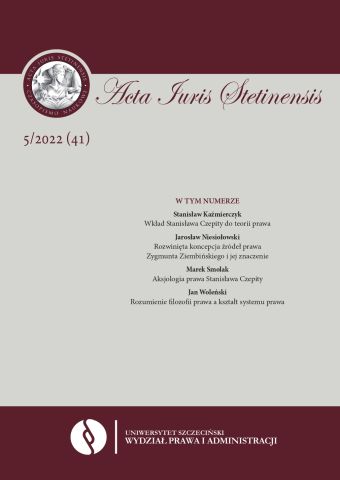Skutek konwencjonalnej czynności procesowej jako jej element konstytutywny
The effect of a conventional procedural act as its constitutive element
Author(s): Ireneusz WolwiakSubject(s): Law, Constitution, Jurisprudence, Constitutional Law, Court case
Published by: Wydawnictwo Naukowe Uniwersytetu Szczecińskiego
Summary/Abstract: The provisions governing the course of examination proceedings before the common court in civil cases also contain content relating to the rights of parties undertaking specific activities to prove the validity of their statements. The individual editorial units of a legal act do not include all the elements related to the party’s taking appropriate behaviour. A single provision captures only a given idea of the legislator. Only a designated set of provisions allows to indicate all the requirements set by the code in the behaviour of the party for which the name was introduced: procedural activity. In view of the sequential course of civil proceedings, the legislator set a goal of their implementation for individual procedural steps, but not always the behaviour of the parties, who use their rights to perform a procedural act, tends to achieve it. Therefore, when introducing further changes to the Code, Art. 41 which prohibits exercising powers contrary to their purpose. There was, thus, a question about the effects of performing an action that was not aimed at achieving the goal related to its implementation by the act. This is because procedural activities are related to the consequences specified by the legislator. Therefore, if such a consequence of the party’s behaviour would be an indispensable element of a procedural action, then the party’s activity aimed at achieving a state of affairs that is not the purpose of the action – should lead to its ineffectiveness. However, such a request will be admissible only if the result of a procedural act is qualified to the set of constitutive rules. In order to derive it, a construction of conventional actions in law developed in science was used. The study of the issue was carried out using the formal and dogmatic method, relying in research activities on the applicable provisions of civil procedural law with their extension to the systemic context of the field of civil law. First of all, however, it focused on the use of elements of formal and logical reasoning with the linguistic analysis of legal texts. At the end of the research activities, deductive reasoning was used, guided by the principles of a sufficient reason and the method of legal argumentation. The summary of the thesis includes a sentence about including the consequential rule in the rules of constitutive procedural activities. The state of affairs caused by the party’s actions, as a result of its striving to achieve the goal of the procedural act, remains in a teleological connection with its behaviour in order to cause an appropriate court decision. The absence of such a relationship, thus becomes the basis for the assertion that the activities have no influence on the course of the proceedings.
Journal: Acta Iuris Stetinensis
- Issue Year: 2022
- Issue No: 41 (5)
- Page Range: 151-169
- Page Count: 19
- Language: Polish

